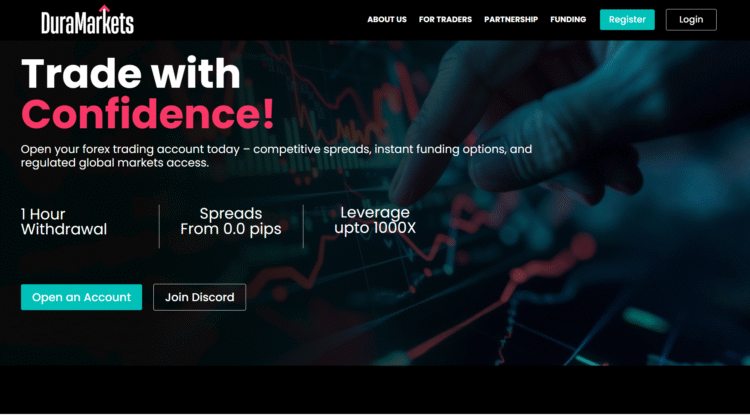
7 Critical Red Flags: Why DuraMarkets Looks High-Risk
7 Critical Red Flags: Why DuraMarkets Looks High-Risk
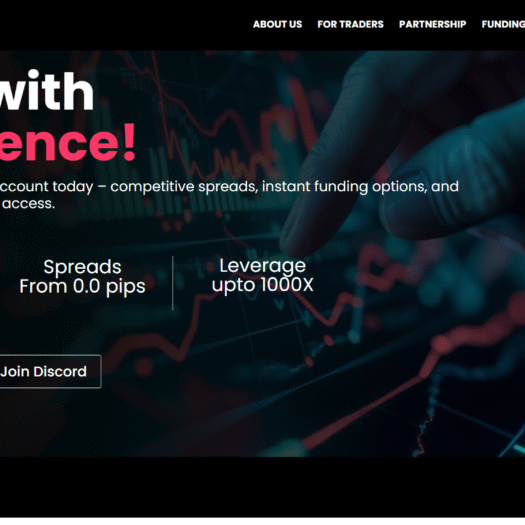
DuraMarkets presents itself as a modern forex/CFD broker with raw spreads, fast execution, copy trading access, and frictionless deposits and withdrawals. Its marketing highlights low latency, “seamless” experiences, and friendly support. On public review portals you can even find many glowing comments praising quick payouts and helpful agents. On the surface, it resembles scores of newer brokers vying for attention with convenience and cost-centric messaging.
Look one layer deeper, though, and multiple serious warnings appear. From regulatory ambiguity and offshore registration to watchdog “scam” assessments and technical red flags, the weight of evidence points to a broker that prudent traders should approach with extreme caution. Below are seven key warning signs to consider before sending DuraMarkets a cent.
1) Unclear or Weak Regulation (Offshore Comoros; not licensed by top-tier authorities)
Regulatory status is the single most important trust anchor for any broker. DuraMarkets points to registration in the Union of the Comoros (often under the Mwali International Services Authority, or MISA). Registration in Comoros can be inexpensive and fast, but it is not equivalent to authorisation by high-reputation regulators such as the UK FCA, Australia’s ASIC, or EU authorities like CySEC. Independent safety aggregators and broker-watch sites state plainly that DuraMarkets holds no valid licence from these top-tier bodies. In practical terms, that means clients forgo the strongest kinds of protection: robust capital and conduct rules, client-money segregation standards with auditing, enforceable dispute processes, and—critically—regulators who will compel a payout when a broker misbehaves.
For many traders who have experienced losses to unregulated or loosely regulated brokers, this is the single disqualifying factor. If a broker is not authorised where you live (or by a recognisable, forceful regulator), you are mostly dependent on the company’s goodwill.
2) Prominent Watchdog Assessments Label It High Risk (and in one case, “scam”)
One of the most visible broker-watch platforms has published a deep-dive calling DuraMarkets a scam, pointing to unregulated status, misleading promises, manipulative sales tactics, and withdrawal friction. Other safety screens assign very low trust scores, citing lack of credible licensing and user-reported issues. While no third-party site is perfect, when multiple independent sources converge on the same concerns regulatory vacuum, withdrawal complaints, questionable marketing that’s a strong signal the risk is not theoretical.
When a broker is brand-new, reviews can be sparse. But DuraMarkets already has enough outside scrutiny to form a pattern: slick marketing, offshore registration, and watchdogs urging traders to avoid it.
3) Highly Positive Public Reviews That Don’t Square With the Risk Profile
On consumer review portals, you’ll find large clusters of five-star praise: fast withdrawals, “amazing” support, tight spreads, and smooth onboarding. That sounds reassuring—until you look at where the company itself is listed (Comoros), the absence of top-tier licensing, and the fact that independent safety sites are waving red flags. High average ratings on open portals are not a substitute for regulation; they also can be influenced by company outreach or review-gathering campaigns. A flood of “it’s great so far” reviews during the first year of a broker’s life is common, yet it often says little about how the firm behaves when you request a large profit withdrawal or when markets become volatile.
Treat public praise as anecdotal noise until you personally verify withdrawal reliability under your own conditions. The mismatch—glossy testimonials alongside serious regulatory gaps—is itself a red flag.
4) Terms, Disclaimers, and “Only Where Legal” Language
DuraMarkets’ legal documents include careful wording about providing services only where legally permitted under local regulations. That is standard for many brokers; the risk comes from which legal permissions actually exist. If the broker has only an offshore registration and no recognised licence in your country (or any top-tier jurisdiction), the “where legally permitted” clause often means “not where you are.” Meanwhile, sales and marketing can still target you online, leaving you to assume protections that do not exist.
This grey-area positioning often turns real when disputes occur: the firm cites its terms and place of registration, and clients discover their local regulator cannot help. Read those documents closely and assume they are written primarily to shield the company, not to guarantee you a fair outcome in a dispute.
5) Offshore Addressing and Opaque Corporate Linkages
Company details shown around the web associate DuraMarkets with a Comoros address and generic contact channels. That’s not unusual for offshore brokers, but opacity multiplies risk. Which legal entity exactly holds your account? Where are client funds banked? Is there negative balance protection? Which dispute forum has binding authority? Well-run, well-regulated brokers tend to publish clear corporate lineage, licence numbers, and regulator-verified details that you can independently confirm. When you’re left triangulating a PO box-style address, a marketing website, and a help email, you are already at a disadvantage.
If a broker wants your money, it can also provide exact, verifiable corporate and regulatory details—ideally ones that are publicly searchable on a reputable regulator’s register.
6) The Classic Pattern: Easy Deposits, Difficult Withdrawals
Across scam-tracking circles, the most consistent victim story is simple: deposits are instant and “support” is chatty and attentive—until you try to withdraw profits. Then the rules change. Suddenly there are new verification steps, “review” holds, requests for additional fees or “tax prepayments,” or outright silence. Numerous brokers that live in loosely regulated jurisdictions apply precisely this script because it works.
Even if some DuraMarkets users report quick payouts for small amounts, that does not guarantee large, profitable withdrawals will be honoured. The only evidence that matters is your own successful withdrawal flow—using your funding rail, from your jurisdiction—executed before you scale your balance. If a broker is legitimate, it will process a small profit withdrawal without invented obstacles.
7) Marketing Promises Outrun Verifiable Substance
DuraMarkets’ pitch checks all the usual boxes: raw spreads, fast execution, hedging and scalping allowed, copy-trading access, zero or minimal fees. In principle, these are positives. In practice, unregulated brokers can say almost anything. They can advertise “raw” spreads and still widen at will; promise “fast execution” while running opaque last-look logic; allow “scalping” but later accuse you of strategy violations to void profits. They can tout “no fees” while embedding costs in spreads or creating withdrawal friction that makes total cost higher than at reputable competitors.
None of these claims carry weight without strong, verifiable oversight and an observable track record of honouring withdrawals under stress. Words on a landing page do not protect your capital.Practical Playbook if You’re Determined to Test Anyway
If, despite the red flags, you still want to try DuraMarkets, treat it like a hostile environment until proven otherwise:
- Fund tiny. Withdraw immediately. Deposit the minimum, place one or two tiny trades, and request a withdrawal (including a small profit). Time it. Document everything.
- Use reversible rails when possible. Cards and certain e-wallets can provide dispute options. Crypto deposits typically eliminate recourse.
- Decline bonuses and “protections.” Promos often come with turnover or clawback clauses used later to block payouts.
- Screenshot every promise. Spreads at the time you traded; account rules; chat transcripts; all T&Cs.
- Check genuine registers. If the broker claims authorisation somewhere serious, you’ll find it on that regulator’s official website under the exact legal entity name.
- Never prepay “taxes” or “release fees.” Legit brokers deduct fees from account balances; they don’t ask for external payments to “unlock” your own funds.
- Stop at the first red flag. If the test withdrawal gets stalled or terms start changing, do not escalate deposits. Preserve what you can and report it.
Conclusion: Final Verdict on DuraMarkets
Add it all up—offshore registration in Comoros, absence of top-tier licences, independent safety screens flagging the brand as high risk (and in one notable case outright calling it a scam), glossy marketing, and a flood of upbeat public comments that don’t reconcile with the regulatory reality—and the conclusion is straightforward: DuraMarkets is a high-risk broker that most traders should avoid.
It is tempting to be swayed by five-star reviews, “instant” deposits, and charming support reps who respond within minutes. But protection comes from the ability of an authority to enforce rules and the obligation of a company to comply—backed by verifiable, recognised licensing. DuraMarkets does not demonstrate that kind of protection. An offshore registration does not become “regulation” just because a landing page says so. When a dispute arises, you want a regulator with a track record of enforcement, not a PO box and a helpdesk.
Could some users cash out small sums without issue? Yes; scammers and high-risk brokers often allow early or small withdrawals to cultivate trust and encourage larger deposits. Could spreads look tight on the website? Certainly; until the moment they are not. Could you get lucky and never face a blocked payout? Possibly; but that is not a risk-management plan—it’s a gamble with your capital and peace of mind.
The safer path is simple: choose brokers with real, verifiable licences in jurisdictions known for investor protection. Look for transparent ownership, audited statements where relevant, clear negative balance protection policies, and long-running public records of timely withdrawals. If you still insist on testing DuraMarkets, only do so with money you can afford to lose entirely, and insist on proving the withdrawal flow with a tiny profit before you scale.
In a market crowded with choices, there is no good reason to accept the compounded risks of offshore registration, weak oversight, and a chorus of watchdog warnings. Your trading edge is hard enough to earn without adding counterparty uncertainty. For most traders, the right move is to avoid DuraMarkets and work with a broker whose regulation, history, and behaviour have already stood the test of independent scrutiny.


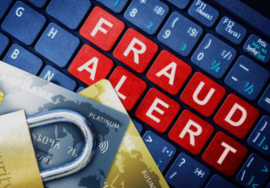
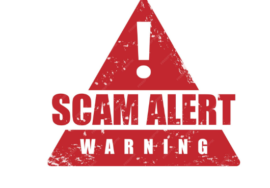


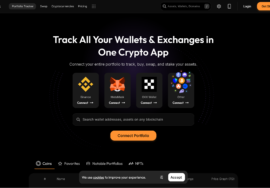
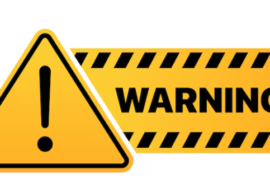
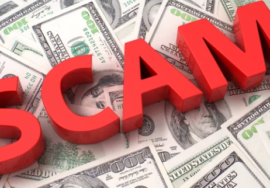
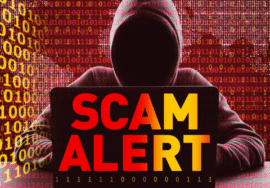
Some users praise its service, while others raise serious complaints. Below are seven strengths balanced with warning signals to help you assess whether it’s safe (or risky) for you.
RECLAIM NOW